| Article ID | Journal | Published Year | Pages | File Type |
|---|---|---|---|---|
| 375084 | Teaching and Teacher Education | 2006 | 13 Pages |
The conditions that promote best practice in the mentoring of beginning teachers in secondary schools are explored in this paper in relation to the experiential model of learning put forward by Kolb [(1984). Experiential learning: Experience as the source of learning and development. New York: Prentice-Hall]. The underpinning processes of this learning cycle include the experience, the reflection, the learning that results and (further) experimentation.We present some empirical research from a two-year funded project on The Professional Development of Subject Induction Tutors and data derived from questionnaires completed by beginning teachers in three education authorities at the start and end of induction year and from semi-structured interviews with sub-samples of beginning teachers. The questionnaire data allowed us to distinguish three broad teacher ‘types’ in terms of their experiences of induction and the associated mentoring. In relation to these types we explored differences and similarities in the extent to which mentoring functions are distributed in schools, the extent to which different mentoring relationships allow beginning teachers to be empowered in their work, and the particular uses made of review and target setting and the value placed on these processes by beginning teachers and their mentors. Overall we found that best practice for ‘developmental mentoring’ involves elements of challenge and risk-taking within supportive school environments with clear induction systems in place and strong school ethos in relation to professional development.
